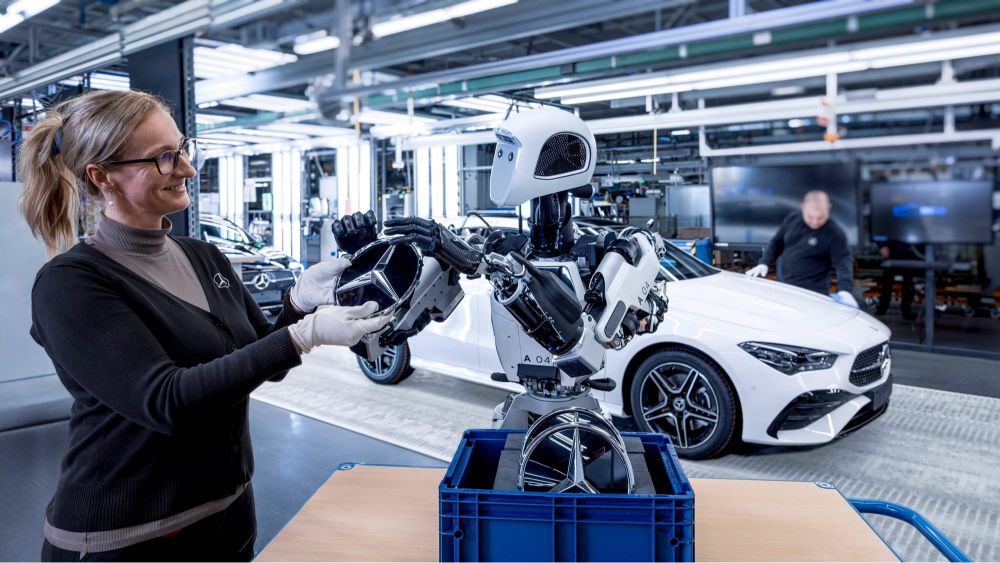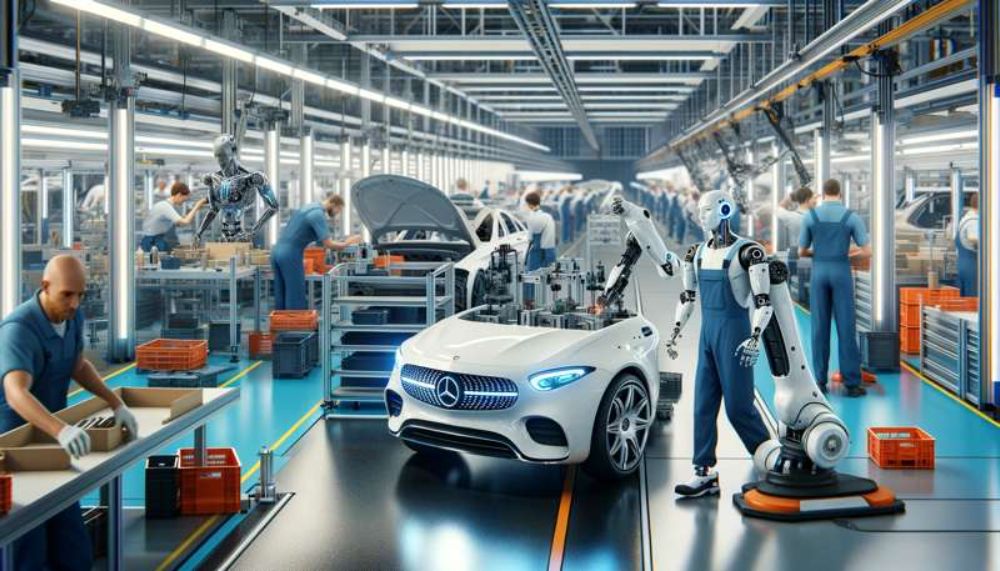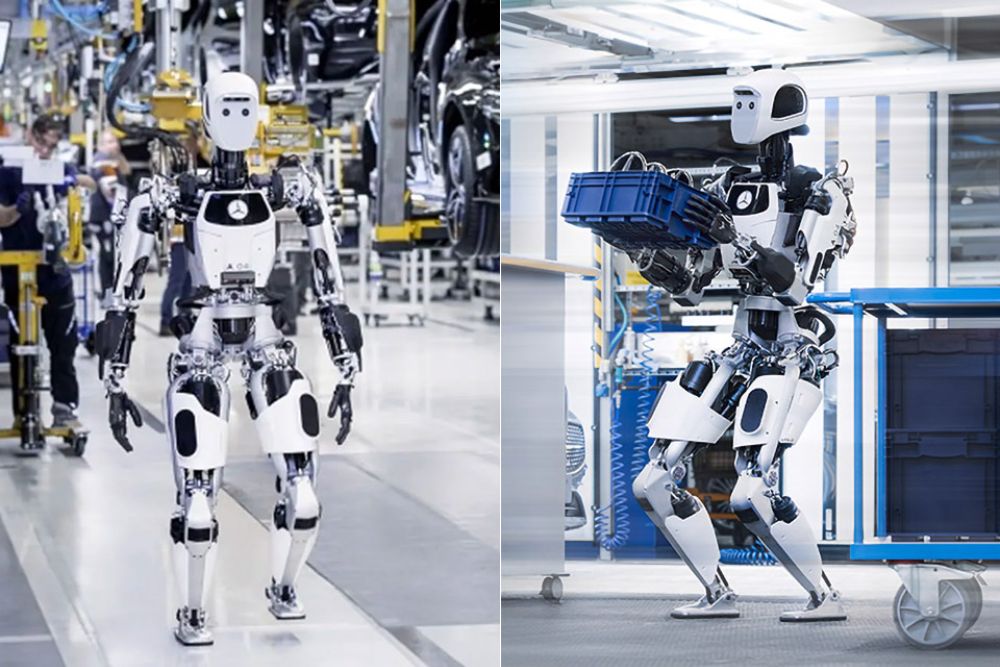Mercedes-Benz Cars, as part of its endeavor to streamline manufacturing processes, has introduced humanoid robots into its assembly lines. These robots, deployed officially by Mercedes-Benz, are aimed at completing manual tasks within the assembly line.

The Apollo robot from Apptronik, designed to assist human workers, will be used to lift components onto units, simplifying tasks requiring “low dexterity.” Beginning March 15th, Mercedes-Benz will utilize these robots to focus on more critical tasks, such as aiding human workers in assembly, transporting components to units, and addressing health and safety concerns.
Standing at 5 feet 8 inches and weighing 72.6 kilograms, the Apollo boasts a lifting capacity of approximately 25 kilograms. The robot operates on a single battery pack, capable of working for about four hours.
Equipped with two arms, legs, and eyes, the Apollo boasts a screen on its chest displaying various details, including company logos. Additionally, it features LED screens capable of displaying digitized information such as icons and battery charge status, serving as its “face.”

When operating on battery power, the robot cannot be charged using cables. However, its battery packs can be swiftly replaced to ensure uninterrupted operation.
The Apollo also incorporates advanced safety features, such as the ability to halt movement upon detecting objects or individuals in its “impact zone.” Moreover, it is equipped with software that allows for remote control, similar to a gaming controller, facilitating operation even from a distance.

Apptronik CEO Jeff Cardenas anticipates that the collaboration between robotics and Apollo’s advanced computing power will enable Mercedes to operate autonomously in the coming months. The global, user-friendly hardware of Apollo robots positions them as ideal collaborators for AI companies. The Apollo robots from Apptronik present another unique feature among the plethora of global, user-friendly hardware options available to AI companies.
